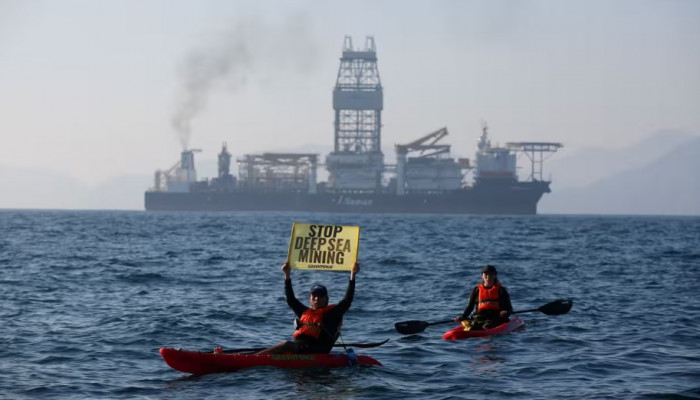Norwegian parliament approves controversial deepsea mining
- In Reports
- 07:23 PM, Jan 10, 2024
- Myind Staff
Norway has advanced toward potentially becoming the world's first country to engage in deep-sea mining after a parliamentary vote in favour of opening its waters for exploration, sparking criticism from environmental organizations.
In a significant move toward initiating commercial deep-sea mining, the Norwegian parliament formally approved the exploration of approximately 108,000 square miles of Arctic seabed. This area, larger than the United Kingdom, spans the region between Norway and Greenland.
The decision, made in the face of growing concerns expressed by scientists, politicians, and environmental groups regarding the potential harm deep-sea mining could inflict on marine life, has triggered an outcry. Scientists are looking closely at the deep ocean, which is seen as one of the last untouched places on Earth. It's rich in resources like copper, cobalt, zinc, and gold, crucial for things like wind turbines and electric car batteries. A study in Norway found a lot of these metals and minerals on the ocean floor near the country.
However, scientists emphasize the limited understanding of the world's oceans, with only a small fraction explored by humans. Many express concerns about the potential repercussions on ecosystems already grappling with pollution, trawling, and the ongoing climate crisis.
The Norwegian government sees seabed minerals as a promising industry, emphasizing sustainability and responsibility, other nations, such as the United Kingdom, have advocated for caution. Last year, the UK announced its support for a moratorium on deepsea mining.
Over 100 European politicians urged the Norwegian parliament to reject deepsea mining in November, citing risks to marine life and the potential release of carbon, accelerating climate change. Additionally, over 800 scientists globally have signed an open letter calling for a pause in deepsea mining, warning of irreversible losses over multi-generational timescales.
Norwegian politician Baard Ludvig Thorheim stated in December that the environmental standards for deepsea mining had been set high, expressing hope that these standards would become the international norm for such activities, according to Reuters.
The timeline for the establishment of a deepsea mining industry in Norway remains uncertain. However, the issuance of mining licenses for extraction requires parliamentary approval, with another vote anticipated before actual mining operations begin, as noted by WWF-Norway’s deepsea mining expert.
Norway's approval adds to the global debate on opening international waters for this practice. The International Seabed Authority is expected to finalize rules on mining in international waters next year.
Image source: CNN







Comments